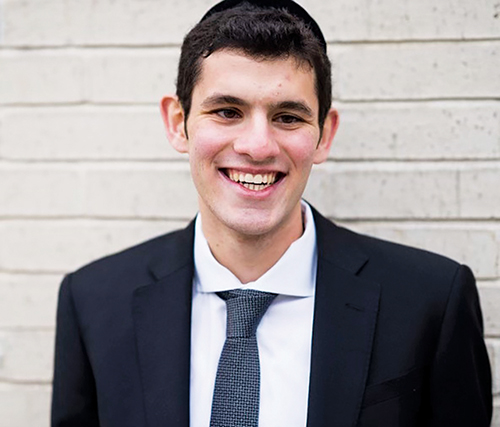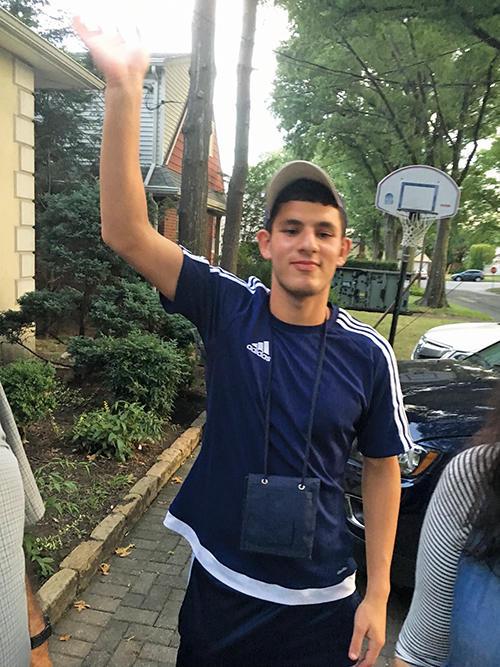
On January 16, yeshiva and seminary applications will close for the year. Across New York and New Jersey, a good percentage of seniors from Orthodox high schools will choose not to attend yeshiva or seminary for the year. My own relative has decided not to spend a year in Israel next year. Qualitative data suggests that two common barriers prompt seniors to opt out of yeshiva or seminary: the financial cost of spending a year in yeshiva or seminary, and pressure from parents to start college or “real life” right away. Nine years ago, I decided to push off college and study in yeshiva for the year. This decision would forever shape my personal and religious life.
During senior year of high school many young adults hit a spiritual all-time low. American society glorifies senior year as a magical time. Once college acceptances come out, reckless activity sometimes follows. Sadly, this author watched friends and himself develop such a mentality.
By the end of senior year, most of my friends had romantic partners and focused more energy on “promposals” than learning Torah or attending minyan. However, by the end of our year in yeshiva, these same friends wore tzitzit on a regular basis. These same friends learned Torah and showed up for three minyans a day. These same friends abandoned all forms of reckless behavior. What happened? Each friend consumed the four great benefits of yeshiva.
First and foremost, yeshiva for the year, otherwise known as the “gap year,” gives students a chance to learn and hear Hashem’s Torah like never before. For this special year, students can push grades aside and give Judaism their complete attention. This pressure-free educational opportunity allows yeshiva students to study Gemara, Tanach and Halacha in a supportive environment. In yeshiva, Gemara class no longer feels like some course with a final. In seminary, Halacha class no longer feels like a course of memorization for tests and quizzes. This atmosphere of Torah education played the catalyst for my enhanced excitement and passion for Yiddishkeit.

In addition to shiurim, in-Shabbats get yeshiva and seminary students pumped up about Yiddishkeit. On in-Shabbats, yeshivas and seminaries have all students spend Shabbat at school together with their teachers. At these Shabbats, students learn to sing zemirot, bond together and experience tisches. At a tisch, all students come together to sing, dance and eat cholent. Right before any tisch ends, one rabbi or student gets up and delivers words of encouragement. Often, pre-set Shabbat timers turn off the lights during tisches to hype things up. In-Shabbats and tisches helped this author make new friends, and garner a new love of Shabbat, and singing zemirot.
Second, the gap year gives students a chance to perform chesed like never before. In my yeshiva, students could choose from one of three weekly chesed opportunities. Students could work on an agricultural farm, become mentors for children from difficult homes, or visit a man with cerebral palsy and play board games with him. These sorts of chesed opportunities motivate yeshiva and seminary students to strengthen their kindness muscles and yearn for additional chesed outlets once their year ends. It motivated this author and many other yeshiva and seminary students to sign up and work at Camp HASC, a sleepaway camp for children and adults with physical or intellectual disabilities.
Third, a gap year gives students a chance to make lifelong friends from across the globe. At my yeshiva, students traveled from Atlanta, England, San Antonio, Brooklyn, Los Angeles, Detroit, Chicago, the Five Towns, Teaneck, and a dozen more places. Meeting Jews from around the world gives yeshiva and seminary students exposure to people with a broad range of interests. In my yeshiva, some guys loved to play video games; others liked to play basketball. Some liked to discuss philosophy; others wanted to work out. Some wanted to have a girlfriend; other guys never had a good friend before. At yeshiva, I learned to befriend people with different interests and personalities. Under the hood, every yeshiva student has the same goals. We all want to have fun. We all want to be a part of something. We all want to connect with others.
Fourth, a gap year gives students an opportunity to experience Israel like never before. Yeshivas and seminaries take students on overnight trips all over Israel’s map. These trips may include early morning hikes up mountains, or memorable visits to many of Tanach’s most famous historical sites. In addition, yeshivas and seminaries bring their students on Shabbat outings to various cities across Israel. For example, my yeshiva did Shabbat outings in Jerusalem, Safed and Meah Shearim.
In Israel, Jewish people take Shabbat and other Jewish holidays to another level. Unlike anywhere else, Shabbat represents a national day of rest in Israel. Parks across the country have a stockpile of families enjoying Shabbat afternoon playtime. Few cars drive on roads during shabbat. Children and teenagers hang out in shul after davening for hours. On Chanukah, students can buy doughnuts and spot menorahs everywhere. On Pesach, students can get more kosher-for-Pesach food than anywhere else. On Shavuot, students stay up all night learning Torah. And Purim. Nobody does Purim like Israel.
Some people might read this article and think, Come on, this sounds too good to be true. Don’t some people have bad experiences in their yeshiva year? Can one year in Israel really make someone become frum for life? What if circumstances change during college or adulthood?
These questions bring up good points. A gap year does not guarantee a child will live a frum lifestyle. It does not guarantee your child will want to live in Israel. However, this experience provides students a greater appreciation for Torah learning, Judaism and the Jewish homeland. It allows students a relaxed environment to make strong personal relationships with different kinds of rabbis. It gives students a chance to live away from home and experience independence. Most of all, it gives students a strong foundation to jumpstart their lifelong religious journey.
This article sought to provide readers tangible benefits for spending a year in yeshiva or seminary. Ultimately, each high school senior will choose whether to take a gap year in Israel or not. Whatever path you choose, make God proud. Strive to become the best person you can be.
This year, my brother (Ezra) and sister (Ahava) are in Israel for their gap year. I wish them ongoing personal and religious growth.
I wanted to publicly thank Rabbi Boaz Mori, Rabbi Ely Allen and all of the Yeshivat Lev HaTorah rebbeim for giving me an unforgettable yeshiva experience.
One interesting point to note is that people over the age of 19 and post-college students can still attend yeshiva or seminary in Israel. If you would like more information, please contact me at the email address below.
Anyone who wishes to discuss what it’s like to spend time in yeshiva/seminary should feel free to reach out to me as well. I can also provide contact information for friends of mine.
My email is Jsilfen2@student.touro.edu.
Please reach out.









